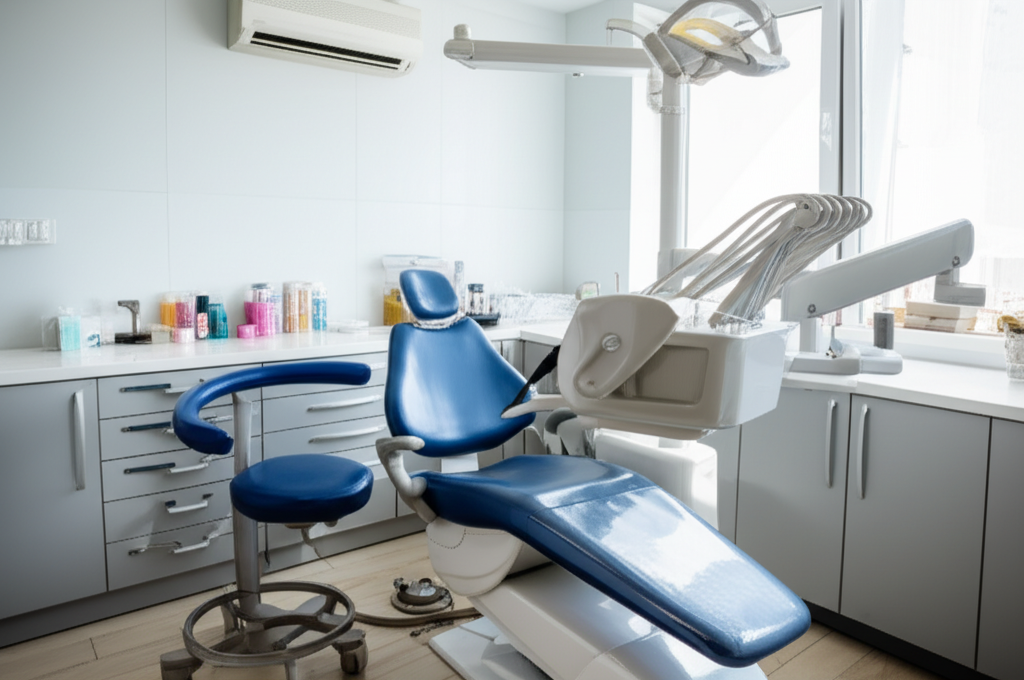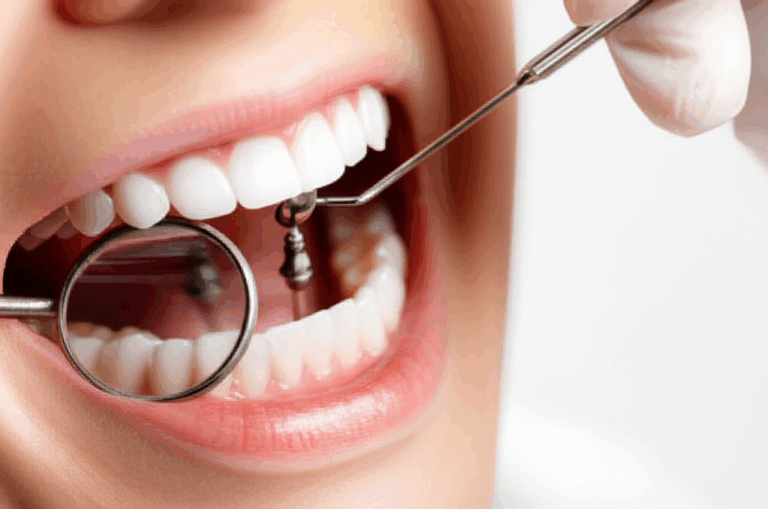
Does Health Insurance Cover Dental Problems? My Experience Navigating Dental and Medical Insurance
Article Outline Overview:
- Introduction: What I Learned About Health and Dental Insurance
- Health Insurance vs Dental Insurance: How They Are Different
- Exceptions: When Medical Insurance Steps In for Dental Problems
- Types of Dental Insurance Plans and How I Compared Options
- Standalone Dental Insurance: What’s Covered (and What’s Not)
- How I Found and Secured Dental Coverage for My Family
- Data, Costs, and Real Cases: What I Discovered
- My Key Takeaways and Next Steps for You
Introduction: What I Learned About Health and Dental Insurance
I’ll never forget the day I opened my medical insurance booklet, thinking I’d find something about them paying for regular dental checkups. Turns out, I was totally wrong. Like lots of people, I thought my regular health insurance would take care of my teeth the same way it did my yearly checkups or flu shots. But in the U.S., dental and health insurance are usually separate, and I learned that the hard way.
But, I also learned that even though health insurance usually stays far away from dental problems, there are a few important cases where they help. Over the years, because of some personal bad luck (like when I broke a molar) and a lot of searching and calling, I figured out when health insurance might step in—and when you’re totally on your own. Let’s get into what you need to know before you sit in the dentist’s chair and find yourself staring at a scary bill.
Table of Contents
- Health Insurance vs Dental Insurance: How They Are Different
- Exceptions: When Medical Insurance Steps In for Dental Problems
- Types of Dental Insurance Plans and How I Compared Options
- Standalone Dental Insurance: What’s Covered (and What’s Not)
- How I Found and Secured Dental Coverage for My Family
- Data, Costs, and Real Cases: What I Discovered
- My Key Takeaways and Next Steps for You
Health Insurance vs Dental Insurance: How They Are Different
At first, I thought insurance was just insurance. Sadly, when it comes to your teeth, that’s not even close.
Health Insurance: Covers Most of Your Body
From what I’ve seen, health insurance takes care of the big things—sickness, accidents, getting hurt bad enough to go to the hospital, normal checkups, and all that stuff. Like if you break a bone, get high blood pressure, or get the flu, it has you covered. But if you need a dental cleaning, a filling, or a crown? Not happening.
Most regular medical plans—even the really fancy ones—I checked usually don’t pay for regular dental care. Sure, there’s always talk about “big” or “major” medical plans, but when I read the details, dental care was left out or stuck in a tiny “maybes” section.
Dental Insurance: Covers Your Teeth
If you need a cleaning, x-rays, a tooth pulled, or a root canal, you’ll probably need a special dental plan. Dental insurance is mostly for things like 6-month cleanings and exams, simple dental work (like fillings), and big jobs (like crowns or dentures).
Here’s what I usually see with dental plans:
- Deductibles: You pay a bit before the plan pays anything.
- Annual maximums: Once you hit the limit (usually $1000-1500), you pay for everything else that year.
- Networks: You pay less if you go to a dentist in their group.
- Waiting periods: You might have to wait months before they’ll help with big stuff.
If this all sounds messy, you’re right—the companies don’t make it easy. Here’s my trick: If the dental issue is a regular thing (like a cavity), it’s dental. If it’s sudden, really bad, or affects your whole health, maybe medical insurance will help.
Exceptions: When Medical Insurance Steps In for Dental Problems
Let’s be real. Most of us hope we never have a dental emergency, but stuff happens. I broke a tooth once while playing softball and found out medical insurance sometimes pays for dental things. Here’s when I found out medical insurance may help cover dental bills:
Dental Surgery That’s Medically Needed
Medical insurance usually helps with dental care if a doctor says it’s medically needed. What does that mean? After a bunch of phone calls with my dentist and the insurance company, here’s what I learned:
- Accidents and Injuries: If you get hit in the face and break teeth or bones, medical insurance will likely pay for the surgeries. Crashed in a car and broke your jaw? That’s usually medical, not dental.
- Bad Infections: I knew someone whose tooth infection swelled so much it almost closed off their airway—they ended up in the ER, and medical insurance paid for the surgery.
- Mouth Cancer: Finding and treating cancers or big tumors in the mouth is covered by medical insurance.
- Birth Defects: Problems like fixing a cleft palate, which makes it hard to eat or talk, count as a medical issue.
- Dental Check before Surgery: Some people need their teeth checked or cleaned out before getting a big surgery (like an organ transplant). Because a tooth infection could mess up the operation, medical insurance sometimes pays for it.
Needing a Hospital for Dental Work
Most dental work is done at the dentist’s office. But sometimes, if you have a medical problem or the dental problem is really big, the work has to be done in a hospital. For example, if you have lots of health risks or a disability and need a tooth pulled in the hospital, medical insurance might cover it.
Anesthesia for Dental Visits
Here’s something I didn’t know: if a doctor (like an anesthesiologist) gives you full sleep medicine for a big dental surgery, health insurance sometimes pays. They do this mainly for kids, people with special needs, or adults having major dental surgery.
Dental Help for Kids under ACA
When my kids got coverage through the Affordable Care Act (ACA), I found out that for kids under 19, dental care is an “essential” part of health coverage. Depending on your state and plan, dental coverage for kids might be part of the health plan or a required extra plan. Either way, kids get better dental care than adults on government plans.
Types of Dental Insurance Plans and How I Compared Options
Once I realized my health insurance wasn’t enough, I started looking for dental coverage. Here’s what I found:
Standalone Dental Plans
This was my first step. There are three big kinds:
- PPO Dental Plans (Preferred Provider Organization): More flexible, you can see pretty much any dentist, but pay more for out-of-network. Nice if you want choice, but it can cost more.
- HMO/DHMO Dental Plans (Dental Health Maintenance Organization): Usually cheaper, but you have to use their dentists.
- Indemnity Plans: Old school, lets you see any dentist, but these are rare and cost more.
Dental Plans from Work
At a past job, dental insurance was included with the benefits. The plan covered more, and my boss paid part of the bill, so it was cheaper for me and my family.
Dental Discount Plans
Dental discount plans aren’t insurance—they’re like being in a club. You pay a yearly fee, and get big discounts at certain dentists. If you can’t get regular insurance or are in between jobs, this is helpful and often cheaper.
Government Programs
- Medicare: I found that Medicare hardly ever pays for regular dental care. Once in a while, if you get a tooth pulled as part of a covered surgery, Part A might pay.
- Medicaid: In my state, adults only get emergency dental work (like having a tooth pulled if it’s really bad), but kids get full dental benefits.
- CHIP (Children’s Health Insurance Program): My neighbor’s kids joined CHIP, and they got cleanings, fillings, and sometimes braces—all paid for.
All of these plans have their good and bad points. I had to look at prices, which dentists were covered, waiting times, and what services they paid for.
Standalone Dental Insurance: What’s Covered (and What’s Not)
By the time I got my own dental plan, I thought I knew what to expect. I was wrong—dental insurance is tricky.
Cleanings and Preventive Care
Most dental plans cover regular cleanings, checkups, and simple x-rays at 100%. That means you don’t pay for basic twice-a-year checkups. I use this all the time—it’s the best part of having the plan.
Basic Work
Fillings, simple teeth pulling, and small repairs. My plan usually paid 70% or 80% of these costs after I paid the deductible. For example, when I had a cavity, I paid my bit, and the plan paid the rest.
Major Work
Crowns, bridges, dentures, root canals—these are the big, expensive things. My plan dropped to 50% coverage for this stuff, after the deductible, and made me wait six months before they’d pay for a crown.
For tricky stuff like crowns and bridges, using a good crown and bridge lab helped my dentist do a good job.
What Isn’t Included
If I wanted teeth whitening, veneers, or any work just to look better, I had to pay for it myself. Adult braces (orthodontics) were not included with my plan, unless the dentist proved I really needed them for my health.
How Much Things Cost
Trust me, the limits matter. Every plan I checked had:
- Annual limits ($1,000-1,500 per person)
- Deductibles and small payments for each visit
- Waiting times for big jobs
Once you hit the yearly max, you pay everything else. So, I always planned big work for the right time.
How I Found and Secured Dental Coverage for My Family
When I finally saw that regular dental care matters, even for healthy teeth, I shopped for coverage. Here’s what worked for me:
With a lot of trial and error—and luck—I found dental coverage my family could afford.
Data, Costs, and Real Cases: What I Discovered
Numbers really matter when you’re looking at what dental care costs.
How Much Dental Care Really Costs
Most people spend around $600-800 per year on dental stuff. Here’s what I paid, or almost paid, without insurance:
- Cleaning: $80–$200
- Filling: $100–$400
- Crown: $900–$2,000
- Root canal: $700–$1,500
If you skip the regular cleanings, you risk bigger, more expensive problems. My friend ignored a cavity until it turned into a $1,500 root canal.
When Medical Insurance Paid for Dental Problems
A family friend got a tooth infection so bad she had to go to the hospital for IV antibiotics. The swelling was life-threatening—that counted as a medical emergency. Health insurance paid for the ER, hospital, surgery, medicine, and visits after. But regular dental work after? She paid herself or used a discount plan.
Another case: My aunt has diabetes, and got gum disease. The doctor said the infection made her other health problems worse. Medical insurance paid for the “needed” parts, like the sedation, but regular cleanings came from dental insurance or her own money.
Kids and Dental: My Experience with Government Plans
If your child’s under 19, ACA plans (plus CHIP/Medicaid in many states) will cover cleanings, fillings, and sometimes even major work. My neighbor’s kids had CHIP and the dental care was great. Their parents, as adults, only got basic or emergency coverage unless they bought extra.
The Big Risk of No Insurance
No dental coverage means bills add up fast. Big dental problems like gum disease can cost $3,000-$5,000. Many people end up in the ER, but the ER just treats your pain—not the cause.
Older Adults and Dental Care
By 2040, over 80 million folks in America will be over 65, but most don’t have regular dental coverage in Medicare. I’ve seen older family members wait or skip dental work because of the cost—other health problems got worse because of it.
My Key Takeaways and What You Should Do
Here’s what I learned about dental and health insurance—and what you should remember for your own teeth:
- Don’t think your health insurance pays for dental. Always check your coverage before you go.
- Know the times health insurance does pay. Sometimes, health insurance helps with dental problems, like after a bad accident, cancer, or if your health is in danger.
- Get dental insurance before you need it. Most plans make you wait for help with big stuff. Emergency dental care is really expensive on your own.
- Go for regular checkups. Those free cleanings and exams save you a ton over time.
- Look at all your options. You can find a plan, discount program, or low-cost clinic for almost any budget.
- Ask lots of questions. Call your insurance or your dentist. They’ve helped me get through tough situations more than once.
- Take care of your mouth. Your teeth and body are really connected. Bad teeth can make other health problems worse.
If you want to learn more about dental problems and teeth health, I found dental diseases and teeth health really helpful. They explain how tooth problems start and why they can hurt your health.
Final Thoughts
So, the truth is my health insurance almost never pays for regular dental care. But in real emergencies—big injuries, infections, or if dental health affects my whole body—then medical insurance might help.
I now always check my plan, ask a bunch of questions, and never skip my cleanings. In the end, having a healthy mouth is more than just having a nice smile—it helps protect your whole body. You deserve that peace of mind too.
If you’re interested in how new dental labs can make treatment better and maybe cheaper, check out how a dental ceramics lab or a veneer lab works with your dentist.
Bottom line: Take care of your teeth now, get insurance before you need it, and ask lots of questions. That way, you’ll be happier (and have more money) for years to come.








